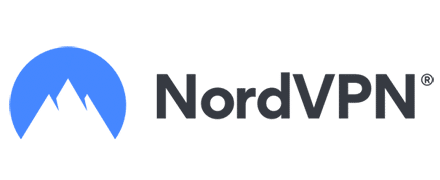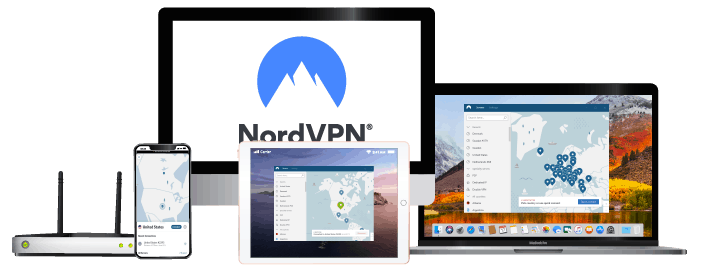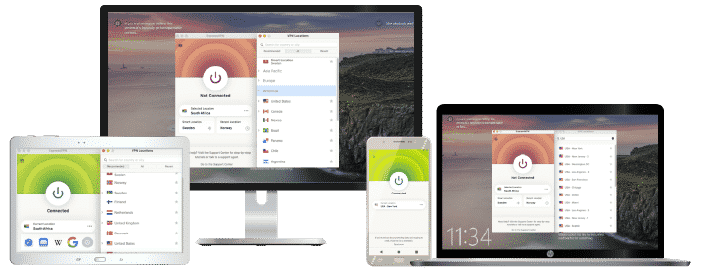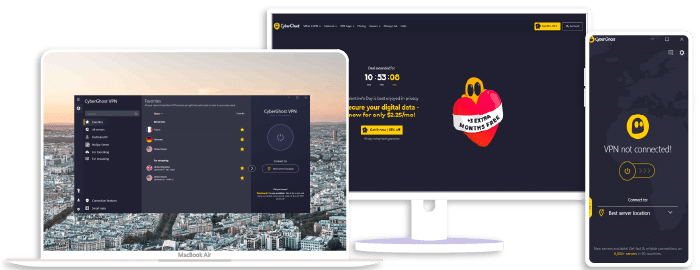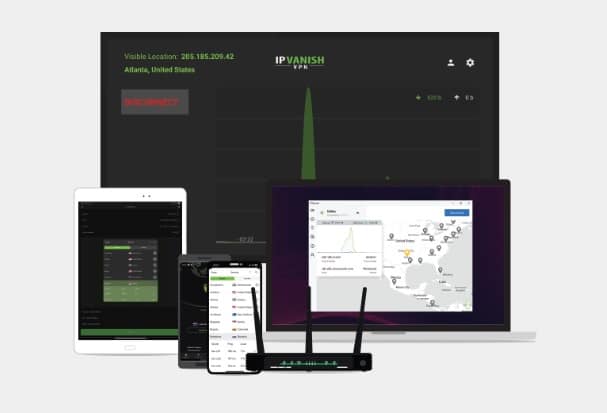How to Set Up a VPN for Enterprise Use
In today’s digital age, setting up a VPN for enterprise use has become an absolute necessity. It isn’t just about safeguarding your business data, it’s about securing the very backbone of your company’s operations. ExpressVPN, NordVPN, and Surfshark are some leading names in this domain, each offering distinctive features to keep your business protected online.
I’ll take you through the fundamentals of setting up a VPN for large-scale usage. Whether you’re a startup dipping your toes into the vast ocean of cybersecurity or an established firm looking to bolster its defenses, this guide will serve as a handy tool.
Many factors come into play when setting up a VPN for enterprise use. You’ve got to choose between various service providers, understand different protocols, and navigate complex installation processes. But fear not: I’m here to simplify all that jargon and help you make informed decisions on choosing and implementing your ideal VPN solution.
NordVPN
Overall score: 9.6
- Incredibly fast servers
- Great security features
- Verified no-logs policy
- Unblocks streaming platforms
30-Day Money-Back Guarantee!
ExpressVPN
Overall score: 9.8
- Super-fast servers
- AES 256-bit encryption
- Supports private protocol, Lightway
- Money-back guarantee
30-Day Money-Back Guarantee!
Surfshark
Overall score: 9.5
- Allows unlimited simultaneous connections
- Integrates Stealth mode
- Multihop feature available
- 3,000+ servers
30-Day Money-Back Guarantee!
CyberGhost
Overall score: 8.8
- 45-day money-back guarantee
- 7,000+ reliable servers
- Strict no-log policy
- Tough security features
30-Day Money-Back Guarantee!
IPVanish
Overall score: 9.4
- Speedy servers
- AES 256-bit encryption
- Offers a 7-day free trial
- Unblocks restricted platforms with ease
30-Day Money-Back Guarantee!
Understanding Enterprise VPNs
A Virtual Private Network (VPN) is a must-have tool in the world of corporate connectivity. It’s all about providing secure, private access to your company’s digital resources, no matter where you are. Let’s dive into understanding enterprise VPNs and how they work.
First things first, an enterprise VPN isn’t just any ordinary VPN like ExpressVPN, NordVPN, or SurfShark. These types are great for individual users who want to protect their personal browsing activities from prying eyes. However, what we’re focusing on here is a whole other beast – the enterprise-level VPN.
An enterprise-level VPN offers much more than just privacy and anonymity. It provides robust security features that safeguard your company’s sensitive information and ensures it doesn’t fall into the wrong hands.
One key feature of these systems is end-to-end encryption. This means data transferred over the network is encrypted at one end (say your employee working remotely) and only decrypted at the destination end (your company’s secure server).
Another vital aspect is multifactor authentication (MFA). With MFA, it’s not enough to have just a username and password; users will need another form of verification, such as a unique code sent to their mobile device or fingerprint recognition.
Let me make it clear that setting up an enterprise-level VPN isn’t as straightforward as downloading an app like ExpressVPN or NordVPN on your device. You’ll require expert IT knowledge or professional assistance to ensure everything runs smoothly without compromising security integrity.
To sum up:
- An Enterprise-level VPN differs greatly from personal use ones like SurfShark.
- They offer advanced features including end-to-end encryption & multifactor authentication.
- Setting them up requires technical expertise or professional help.
So there you have it! Now you understand what an enterprise VPN entails and why it’s essential for businesses today. Stay tuned for more insights in our next section, where we’ll discuss how to set one up for your own business!
Step-by-Step Guide to Setting Up a VPN for Enterprises
Let’s dive into the nuts and bolts of setting up an enterprise-level VPN. I’ve outlined a straightforward, step-by-step process that’ll make your task easier.
Firstly, you need to select a VPN provider. ExpressVPN, NordVPN, and Surfshark are all top-tier choices, each with its own set of advantages. For instance, ExpressVPN offers robust security features and speed, while NordVPN provides an extensive server network. Surfshark, on the other hand, is known for its affordability without compromising on services.
The next step involves creating user accounts. You’ll do this by visiting the chosen VPN’s site and signing up for an enterprise account. Remember to create unique usernames and passwords for each user within your organization.
Once you’ve got your accounts sorted out, it’s time to configure your servers. This might sound daunting, but don’t worry! Most VPN providers offer comprehensive guides on how to do this – just follow along!
Now let me highlight some important points:
- Make sure you choose servers in locations that best suit your business needs.
- Ensure that all security settings are properly configured.
- Regularly update your server configurations as needed.
The fourth step is installing the software onto individual devices. This could be laptops, desktops or even mobile phones, basically any device that will access company data remotely through the VPN.
Finally, we come to testing; arguably one of the most vital steps in this setup process! Once everything’s installed and set-up:
- Test every feature thoroughly.
- Check if connections are secure.
- Monitor speed and reliability over several days.
Setting up a VPN isn’t something you can rush through – it requires careful thought and consideration at each stage of implementation.
I hope these steps have made things clearer for you when setting up a corporate-level VPN solution using platforms like ExpressVPN, NordVPN or Surfshark!
Conclusion: The Importance of Proper VPN Setup
I can’t overstate the importance of setting up a VPN properly for enterprise use. It’s fundamental to secure your data and maintain privacy in a world that’s increasingly connected. But, it isn’t just about installing any VPN; it’s about choosing the right one and setting it up correctly.
ExpressVPN, NordVPN, and Surfshark are among the top choices for enterprises. They offer quality services that meet different business needs. These three have proven their strength in security features, speed, server availability, user-friendliness, customer support and pricing.
- ExpressVPN stands out with its high-speed connections and robust security measures.
- NordVPN shines with its massive server network and advanced security features.
- Surfshark, on the other hand, offers unlimited device connections under one subscription.
But remember, simply choosing a top-rated VPN isn’t enough. You’ve got to set them up correctly as well. Follow these steps for successful setup:
- Define your needs
- Choose the right service provider (like ExpressVPN or NordVPN)
- Install & configure according to your requirements
- Test extensively before full deployment
A poorly configured VPN can lead to data leaks or even complete accessibility failure! So take time to understand your specific requirements before diving in.
In conclusion, whether you’re running a small business or managing an enterprise-level operation; you need a reliable VPN like SurfShark or ExpressVPN installed correctly for safe online operations!
